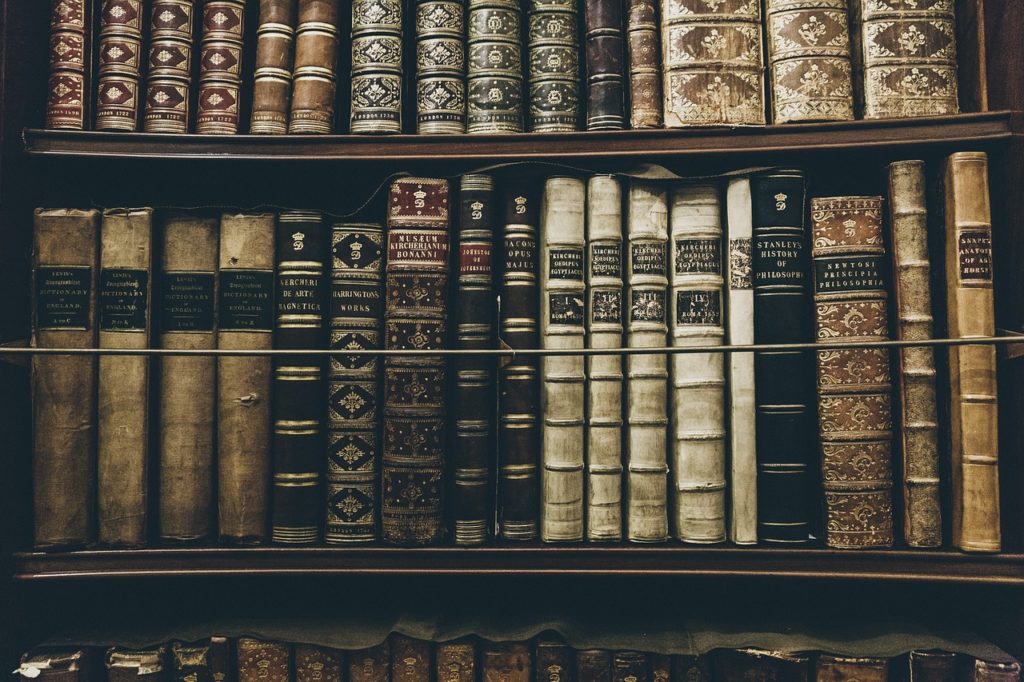In the realm of philosophical exploration, these 240 thought-provoking and deep philosophical questions serve as gateways to the heart of existence and the intricacies of human consciousness. From pondering the meaning of life and the intricacies of free will to contemplating human nature and the ethics of artificial intelligence, each question beckons us to embark on a journey of introspection, critical thinking, and intellectual curiosity.
Through the lens of these philosophical questions, we delve into the very fabric of reality, touching upon timeless inquiries that have captivated the minds of philosophers, thinkers, and dreamers throughout history. The realm of philosophy calls us to cast aside preconceptions, embrace uncertainty, and engage in the pursuit of wisdom.
The journey of exploring these deep philosophical questions is not merely an intellectual exercise; it’s an invitation to contemplate our beliefs, challenge assumptions, and expand the horizons of our understanding. It’s a reminder that the pursuit of knowledge and self-discovery is a lifelong endeavor, and that answers are often elusive and subject to interpretation.
As you reflect on these thought-provoking questions, consider that the answers you find may be as diverse as the individuals contemplating them. These questions ignite discussions, foster understanding, and encourage empathy, as we attempt to navigate the complexities of existence together.
In a world filled with noise and distractions, the act of pondering these questions allows us to connect with the deeper currents of human thought. Whether it’s the exploration of morality, the investigation of consciousness, or the consideration of the cosmos, the pursuit of critical thinking and philosophical understanding offers a space for contemplation, dialogue, and growth.
So, embrace these questions as catalysts for intellectual exploration. Engage with them in solitude, discuss them with friends, and let them inspire you to seek a deeper connection with the world around you. As you venture into the depths of these inquiries, you’ll find that the journey itself is as enriching as the answers you may encounter.
Philosophical Questions About Reality and Perception
- What is the nature of reality, and how can we be certain of its existence?
- Are our perceptions of reality shaped solely by our senses, or is there more to it?
- Can we ever truly understand the objective reality, given the limitations of our senses?
- How does our understanding of reality influence our perception of the world around us?
Exploring Free Will and Determinism
- Do humans possess genuine free will, or are our actions predetermined by external factors?
- Can a person be truly held accountable for their choices if determinism is true?
- How does the existence or absence of free will impact our concepts of morality and responsibility?
- Is there room for both free will and determinism to coexist within our choices?
Probing the Depths of Human Nature
- What defines human nature, and to what extent can it be shaped by nurture?
- Is human nature inherently good, or do we possess both virtuous and darker tendencies?
- How does our understanding of human nature influence our views on societal structure and justice?
- Can human nature be fundamentally changed, or are we bound by its inherent traits?
The Search for Meaning and Purpose
- What gives life its ultimate meaning, and can we find purpose in an indifferent universe?
- Is a good life solely defined by happiness, or are there deeper facets to consider?
- Can a fulfilling life be achieved without a definitive sense of purpose or meaning?
- How does our understanding of mortality impact the pursuit of meaning and purpose?
On Knowledge, Belief, and Truth
- How do we differentiate between knowledge and mere belief, and what justifies our beliefs?
- Are there limits to human understanding, or can we potentially grasp all truths?
- Can there be multiple valid perspectives on a single truth, or is there only one objective reality?
- What role does doubt play in our pursuit of knowledge and the acceptance of truth?
The Moral Landscape
- What constitutes a morally good action, and do moral values differ across cultures?
- Are there actions universally considered morally wrong, regardless of cultural context?
- Do ethical principles have an objective foundation, or are they constructs of human society?
- How do we reconcile conflicting moral values when they come into ethical conflict?
Cultivating Critical Thinking
- How can we nurture critical thinking skills that enable us to navigate complex issues effectively?
- To what extent does questioning societal norms lead to progress and individual growth?
- Is it possible to strike a balance between embracing tradition and challenging established ideas?
- Can critical thinking sometimes lead to uncomfortable truths, and how do we handle them?
Emotions and Rationality
- In what ways do emotions enhance or hinder our capacity for rational decision-making?
- Can emotions provide insights that reason alone cannot, and should they be trusted?
- How do emotions shape our moral judgments, and do they vary across individuals?
- Can reason alone guide us through moral dilemmas, or do emotions play an essential role?
Prioritizing the Essentials
- What is the most important contribution a person can make to society during their lifetime?
- How do we balance personal happiness with responsibilities to our communities?
- Are there universally cherished values that transcend cultural and temporal boundaries?
- How do we determine the relative significance of various aspects of life, such as career, relationships, and personal growth?
The Quest for Answers
- Can philosophy questions ever be definitively answered, or do they evolve with time?
- Are there answers that satisfy some but not others, and how do we handle these differences?
- Can the pursuit of answers to deep questions lead to self-discovery and broader understanding?
- Is the journey of questioning as valuable as the destination of finding answers?
The Nature of Reality and Existence
- Can we trust our senses to accurately perceive reality, or are they prone to distortion?
- What is the relationship between the mind and the external world in shaping our reality?
- Could our reality be a simulation, and if so, how would that impact our understanding of existence?
- How does the concept of time affect our perception of reality, and is it an inherent part of the universe?
Fate, Destiny, and Free Will
- Is fate an immutable force guiding our lives, or can we shape our destinies through choices?
- How do cultural and societal influences shape our perception of free will?
- Can we find meaning in a world where free will coexists with unforeseeable events?
- Does the uncertainty principle in quantum physics challenge the notion of free will?
The Complexity of Human Identity
- What constitutes the core essence of an individual’s identity, and is it unchanging?
- How do experiences and relationships contribute to the formation of our personal identities?
- Is there a distinction between one’s perceived identity and their true self?
- Can an individual possess multiple identities that coexist and sometimes conflict?
The Pursuit of Happiness and Contentment
- Does the pursuit of happiness lead to genuine contentment, or is it a fleeting endeavor?
- Can a person lead a good life without experiencing hardships and challenges?
- Is the pursuit of personal happiness compatible with the greater good of society?
- How does the concept of happiness differ across cultures and philosophical traditions?
The Boundaries of Knowledge and Ignorance
- Is there a point at which accumulated knowledge becomes a hindrance to further understanding?
- How do biases and preconceptions influence our acquisition and interpretation of knowledge?
- Can we ever be certain that we possess complete knowledge about any subject?
- Is ignorance a necessary aspect of the human condition, and can it lead to wisdom?
Ethics and Moral Dilemmas
- Are there universal moral principles that transcend cultural and individual differences?
- How do we navigate ethical dilemmas where the right course of action is unclear?
- Can a morally justifiable action in one context become unethical in another?
- What role does empathy play in our moral decision-making, and is it a reliable guide?
The Power of Language and Communication
- How does language shape our thoughts and influence our perception of reality?
- Can concepts that are beyond the scope of language ever be fully understood?
- Does the potential for miscommunication undermine the pursuit of shared understanding?
- How do language barriers affect the global exchange of philosophical ideas?
Reflections on Mortality and Immortality
- How does our awareness of mortality impact the choices we make and the goals we pursue?
- Would the pursuit of immortality alter our values and motivations?
- Is the concept of an afterlife a source of comfort or a limitation on living fully?
- Can the finite nature of human life be considered a prerequisite for a meaningful existence?
Morality and Cultural Relativism
- Can moral principles be universally valid despite cultural differences, or are they relative?
- How do we strike a balance between respecting cultural diversity and addressing human rights?
- Can cultural practices that harm individuals be justified solely on the grounds of tradition?
- How do we evaluate moral progress when societies evolve in their ethical beliefs?
Exploring the Limits of Reason
- Is there a distinction between rationality and intuition, and can they coexist harmoniously?
- Are there questions that reason alone cannot answer, transcending the boundaries of logic?
- How do we discern between logical paradoxes and genuine mysteries of existence?
- Can a balance between reason and intuition lead to a deeper understanding of reality?
The Pursuit of Artistic Expression
- Can art provide insights into the human experience that are not accessible through philosophy?
- What role does creativity play in expanding our perspectives and challenging norms?
- Can a work of art possess inherent meaning, or is meaning attributed by the viewer?
- How does the interpretation of art vary across cultures and personal backgrounds?
Ethics of Technology and Progress
- What ethical responsibilities do we have in the advancement of technology and science?
- How do we balance the benefits of progress with the potential risks and consequences?
- Can technological innovations ever replace or replicate aspects of the human experience?
- How do advancements in fields like artificial intelligence raise questions about identity and consciousness?
The Nature of Beauty and Aesthetics
- Is beauty an objective quality, or does it lie solely in the eyes of the beholder?
- How does the appreciation of beauty contribute to our emotional and intellectual experiences?
- Can an understanding of beauty lead to a deeper comprehension of universal truths?
- Does the pursuit of beauty in art and nature connect to our search for meaning and purpose?
Perception of Time and Existence
- Is time a subjective construct, or does it possess an objective existence?
- How does our perception of time shape our understanding of the past, present, and future?
- Can time be considered an illusion, given the relativity demonstrated by physics?
- How does the impermanence of existence influence our choices and values?
The Role of Empathy in Ethics
- How does empathy contribute to our moral decision-making and interactions with others?
- Can empathy sometimes lead to biased judgments and decisions?
- Is it possible to develop empathy for individuals with vastly different life experiences?
- Can empathy extend beyond the human sphere to include other species and the environment?
Identity and Cultural Assimilation
- How does the process of cultural assimilation impact individual identity and heritage?
- Can one belong to multiple cultural identities simultaneously, and how do they intersect?
- Is cultural assimilation a necessary step in building diverse and inclusive societies?
- How do cultural identities evolve in an era of globalization and interconnectedness?
Morality and Utilitarianism
- Can the principle of utility serve as a foundation for a universal ethical framework?
- How do we measure the consequences of actions in terms of overall happiness?
- Are there inherent conflicts between individual rights and the greater good in utilitarianism?
- Is it possible to quantify and compare different forms of happiness and suffering?
The Ethics of Artificial Intelligence
- What ethical considerations arise from the creation of intelligent machines and AI?
- Can AI possess consciousness, and how would we recognize or define it?
- How do we determine the moral responsibilities and rights of artificial intelligences?
- Can AI-driven decision-making be programmed to align with human ethical values?
The Paradox of Choice
- How does the abundance of choices in modern society impact our happiness and well-being?
- Can too many options lead to decision paralysis and dissatisfaction?
- Are there benefits to limited choices, or does freedom of choice always outweigh them?
- How can we strike a balance between the freedom to choose and the potential downsides of choice overload?
The Nature of Friendship and Connection
- What constitutes a meaningful friendship, and how do digital connections influence it?
- Can virtual friendships be as authentic and fulfilling as those formed in person?
- How do cultural norms and societal expectations shape our understanding of friendship?
- Can we form genuine connections with individuals who hold vastly different beliefs?
The Concept of Justice
- Is justice an objective concept, or does it vary across cultures and legal systems?
- How do we balance the principles of retribution, rehabilitation, and deterrence in justice?
- Can a just society exist without addressing systemic inequalities and injustices?
- What role does forgiveness play in the pursuit of justice and societal harmony?
The Pursuit of Knowledge and Wisdom
- Is wisdom merely the accumulation of knowledge, or does it encompass something more profound?
- How do we distinguish between knowledge that is useful and knowledge that is essential?
- Can an individual be wise without formal education, or is learning a prerequisite?
- Is it possible to impart wisdom to future generations, or must it be individually acquired?
The Ethics of Environmental Stewardship
- How do philosophical principles guide our responsibilities toward the environment?
- Can nature possess intrinsic value and rights, independent of its utility to humans?
- How do we balance our needs with the preservation of ecosystems and biodiversity?
- Can technology play a positive role in addressing environmental challenges, or does it exacerbate them?
The Boundaries of Infinity
- Can we truly comprehend the concept of infinity, whether in space, time, or mathematics?
- How does the notion of infinity impact our understanding of the universe’s origins?
- Can human minds ever grasp the concept of infinity, given our finite nature?
- Are there limits to our understanding of infinity, or will it forever remain an enigma?
The Nature of Good and Evil
- What defines an action as morally good or evil, and are these distinctions absolute?
- Can individuals who commit evil actions be considered fundamentally evil themselves?
- How do historical, cultural, and situational factors influence our judgments of good and evil?
- Is the presence of evil in the world evidence against the existence of an all-powerful and benevolent deity?
The Search for Inner Peace
- How do philosophical principles contribute to finding inner peace and contentment?
- Can the pursuit of inner peace coexist with the demands and challenges of the external world?
- Is there a universal path to achieving inner tranquility, or is it a personal and individual journey?
- How can philosophical practices, such as mindfulness and introspection, aid in achieving inner harmony?
Morality and Altruism
- Is true altruism possible, or do all acts of kindness ultimately serve the self?
- How does the existence of altruism impact our understanding of human nature?
- Can empathy and compassion be taught and nurtured, leading to a more altruistic society?
- How do societal structures and economic systems influence the prevalence of altruistic behavior?
The Interplay of Tradition and Progress
- How do we navigate the tension between preserving cultural traditions and embracing progress?
- Can traditional values be reconciled with evolving societal norms and ethical standards?
- Are there instances when the rejection of tradition is necessary for societal advancement?
- How can we strike a balance between respecting tradition and challenging its potentially harmful aspects?
The Ethics of Biomedical Advancements
- What ethical considerations arise from advancements in biotechnology, genetic engineering, and medicine?
- Can altering the human genome lead to unforeseen consequences for future generations?
- How do we balance the benefits of prolonging life with the quality of life for individuals?
- What are the boundaries of ethical experimentation and technological enhancement in the realm of medicine?
The Nature of Identity and Belonging
- How does the concept of belonging shape our identity and self-perception?
- Can an individual find a sense of belonging without conforming to societal norms?
- How do globalization and multiculturalism impact our understanding of identity and belonging?
- Can we simultaneously belong to multiple groups without compromising our sense of self?
The Morality of War and Conflict
- Is there ever a morally justifiable reason for resorting to war and armed conflict?
- How do ethical principles guide the use of force and the protection of innocent lives?
- Can warfare ever lead to lasting peace, or does it perpetuate a cycle of violence?
- Is the concept of a “just war” a valid framework for evaluating the morality of armed conflict?
The Concept of Beauty in Art
- Is beauty the primary goal of art, or can it serve other purposes, such as provocation or critique?
- How does art challenge societal norms and influence cultural perspectives?
- Can art convey truths about the human experience that are inaccessible through other forms of communication?
- Is beauty a universal standard, or does it vary depending on cultural, temporal, and individual factors?
The Metaphysics of Dreams and Reality
- What insights can dreams provide into the nature of reality and human consciousness?
- Are dreams a realm of pure imagination, or do they hold deeper meanings and significance?
- Can the boundaries between dreams and reality become blurred, leading to altered perceptions?
- How do cultural beliefs and mythologies shape the interpretation of dreams across different societies?
Ethical Dilemmas in Artificial Intelligence
- How do we address the potential ethical dilemmas arising from AI decision-making?
- Can artificial intelligence be programmed to make morally sound decisions in complex situations?
- Are humans ethically responsible for the actions of autonomous AI systems they create?
- How can we ensure that AI technologies adhere to ethical principles while maintaining human oversight?
The Morality of Animal Rights
- What ethical obligations do humans have toward non-human animals and their well-being?
- Can animals possess rights, and how do these rights intersect with human interests?
- Is there a moral distinction between domesticated animals and those in the wild?
- How do our ethical beliefs and practices toward animals reflect our broader moral values?
The Boundaries of Consciousness
- What defines consciousness, and can it be attributed to entities beyond humans?
- Can we ever understand the nature of consciousness through empirical observation alone?
- How does consciousness emerge from the physical brain, and is it an emergent property?
- What implications does the study of consciousness have for our understanding of life, death, and the universe?
The Ethics of Privacy in the Digital Age
- How do digital technologies challenge our notions of privacy and personal boundaries?
- Can individuals maintain a sense of privacy in a world of constant connectivity?
- What ethical considerations arise from the collection and use of personal data by corporations and governments?
- How do we balance the benefits of technology with the potential risks to personal privacy?
The Role of Philosophy in Education
- How does philosophy contribute to the development of critical thinking skills in education?
- Can philosophical inquiry foster empathy, open-mindedness, and effective communication?
- Should philosophical education be a core component of curricula across all academic disciplines?
- What is the value of philosophical reflection in preparing students for a complex and ever-changing world?
The Nature of Reality in a Digital Age
- How does the proliferation of digital spaces impact our understanding of reality and existence?
- Can virtual experiences hold the same value and authenticity as physical ones?
- Are there ethical implications to living a significant portion of our lives in digital realms?
- How do the distinctions between the digital and physical worlds influence our perception of truth and knowledge?
The Pursuit of Social Justice
- How does philosophy contribute to the understanding and pursuit of social justice?
- Can a just society exist without addressing systemic inequalities and discrimination?
- How do we balance the principles of individual rights with the common good in matters of justice?
- Is the pursuit of social justice a continual process of change and adaptation, or can it be achieved definitively?
The Morality of End-of-Life Decisions
- What ethical principles guide decisions regarding end-of-life care and assisted suicide?
- Can individuals have a right to autonomy over their own deaths, and how is this balanced with societal interests?
- How do cultural beliefs and religious perspectives influence end-of-life choices?
- How can philosophical and ethical frameworks help individuals and families navigate the complexities of mortality?
The Search for Meaning in Adversity
- How do individuals find meaning and purpose in the face of adversity and suffering?
- Can suffering and hardship contribute to personal growth and a deeper understanding of life?
- Is there a connection between finding meaning in life and the ability to overcome challenges?
- How do different philosophical perspectives address the question of why suffering exists in the world?
The Morality of Genetic Manipulation
- What ethical considerations arise from the ability to manipulate the human genome?
- Can genetic engineering lead to improved human traits without unintended consequences?
- How do we ensure equitable access to genetic enhancements while avoiding social inequalities?
- Are there limits to the extent to which we should manipulate genetic traits for the betterment of humanity?
The Nature of Power and Authority
- How is the legitimacy of power and authority established within societies?
- Can the concentration of power lead to abuses and the erosion of individual freedoms?
- How do philosophical concepts of justice intersect with the exercise of power and authority?
- Is a balance between centralized authority and individual autonomy essential for a just society?
The Ethics of Cultural Appropriation
- What constitutes cultural appropriation, and how do we navigate its ethical complexities?
- Can the sharing and fusion of cultural elements lead to mutual understanding and enrichment?
- When does the appropriation of cultural practices become disrespectful or harmful?
- How can we bridge the gap between cultural appreciation and appropriation while fostering a global community?
The Role of Emotion in Decision-Making
- How do emotions influence our rational decision-making processes?
- Can emotional responses lead to biases that hinder our ability to make sound judgments?
- Is it possible to cultivate emotional intelligence that enhances our ethical decision-making?
- How can we find a harmonious balance between rational analysis and emotional intuition in our choices?
The Ethics of Wealth and Income Inequality
- How do philosophical principles guide our understanding of wealth distribution and inequality?
- Can economic systems be designed to reduce disparities in wealth without stifling innovation?
- How does wealth inequality impact societal cohesion, opportunity, and social mobility?
- Can philanthropy and social responsibility alleviate the moral concerns associated with extreme wealth accumulation?
The Nature of Reality Beyond Space and Time
- Can philosophical inquiry shed light on dimensions of reality beyond space and time?
- How do concepts of eternity and infinity intersect with our understanding of existence?
- Can the human mind comprehend realities that exist beyond the constraints of time?
- How do various philosophical traditions grapple with the notion of reality existing beyond our material universe?
The Ethics of Artificial Reproduction
- What ethical considerations arise from advances in artificial reproduction technologies?
- Can humans maintain meaningful connections and relationships in a world of reproductive technology?
- How do we balance the desire for genetic lineage with the well-being of potential offspring?
- Are there moral limits to the extent to which humans can control and manipulate the process of reproduction?
The Search for Purpose in a Technological Age
- How does the rapid advancement of technology impact our sense of purpose and meaning?
- Can individuals find purpose in a world where automation replaces traditional roles?
- Is the quest for purpose a timeless human pursuit, or is it influenced by contemporary circumstances?
- How can philosophical reflection help individuals navigate the challenges of finding purpose in a rapidly changing world?
Conclusion: Navigating the Landscape of Meaning and Knowledge with Philosophical Questions
The journey through these 240 deep philosophical questions has allowed us to traverse the vast terrain of human inquiry. From contemplating the meaning of life to unraveling the enigma of free will, from exploring the intricacies of human nature to confronting the ethical implications of artificial intelligence, these philosophical questions have offered us a glimpse into the complexities of existence.
As we engage with these thought-provoking philosophical questions, we engage in an act of exploration that transcends time and cultural boundaries. They encourage us to exercise critical thinking and self-reflection, guiding us towards a deeper understanding of our beliefs, values, and the world we inhabit.
While these questions may not always yield clear and definitive answers, the journey itself holds immense value. Through pondering these inquiries, we enrich our intellectual lives, broaden our perspectives, and foster a greater appreciation for the beauty of uncertainty. The pursuit of knowledge and wisdom, driven by the quest for answers to life’s most profound inquiries, remains a cornerstone of human experience.
So, let these deep philosophical questions continue to inspire your intellectual curiosity and fuel your passion for understanding. Embrace the challenge of exploring the mysteries of existence, and remember that the act of asking itself can be as transformative as the possible answers that await. In the pursuit of the good life and the search for the most important thing, the journey of philosophy provides a map to navigate the complexities of meaning and knowledge.




